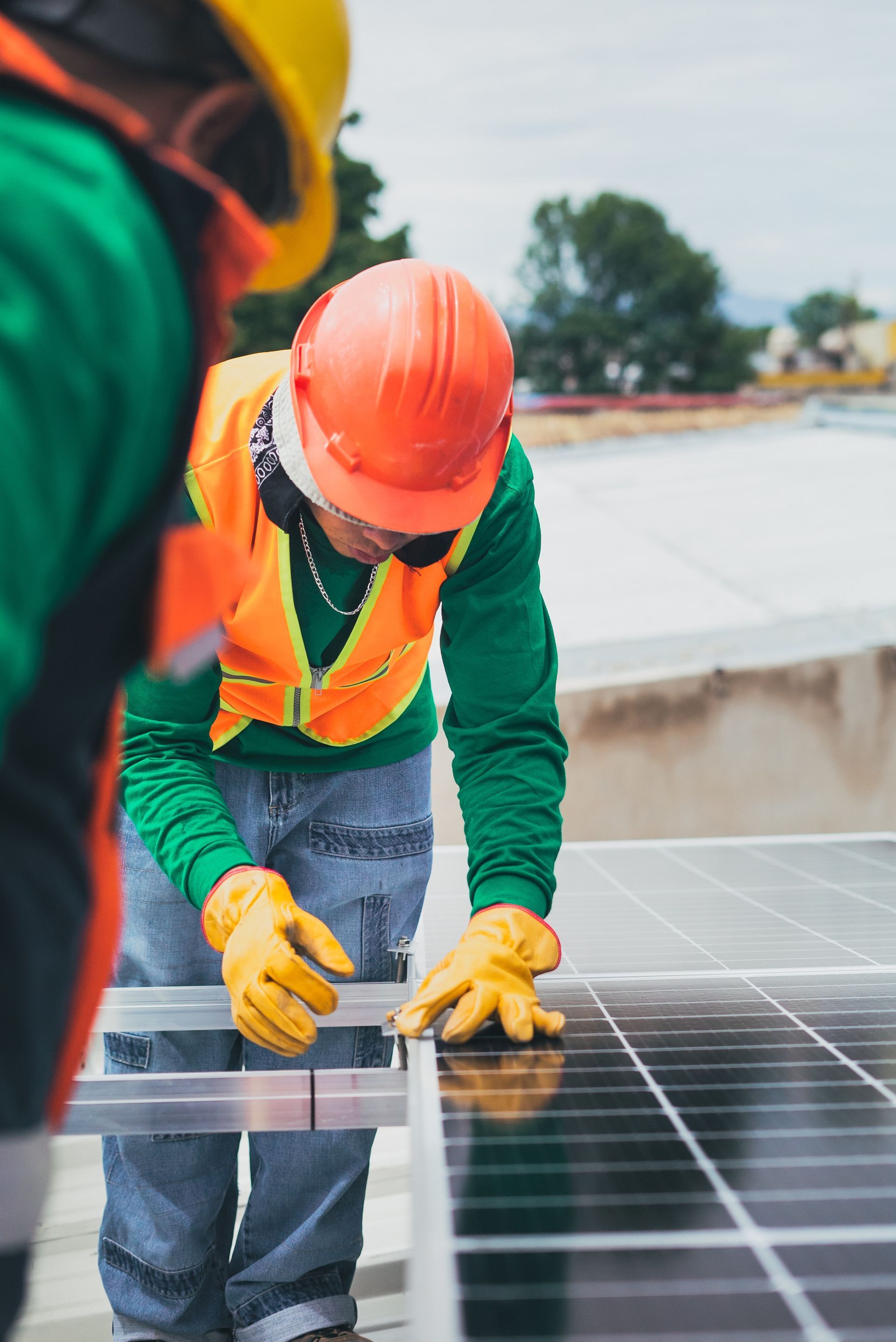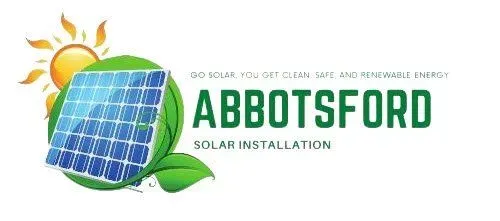Abbotsford Solar Installation
Avoiding Common Pitfalls In Installing Solar Panels
Solar panels are sweeping the nation as more homeowners recognize the long-term savings and environmental benefits. But diving into the solar world has its pitfalls.
That's why it's necessary to arm yourself with the right information before significantly changing your home. In this blog, we'll walk you through common mistakes people make when installing solar panels for home and how to sidestep them.
Why Go Solar?
Solar energy is a clean, renewable resource that helps you reduce your carbon footprint. By installing solar panels, you're directly contributing to reducing greenhouse gas emissions and decreasing dependency on fossil fuels.
Benefits:
Long-term cost Savings
Lower Electricity Bills
Tax Incentives
Energy Independence
Less Reliance on Grid
Storage Options

Pitfall 1: Inadequate Research
Failing to do adequate research can result in various problems. You could end up with a solar panel system that needs to be more efficient for your energy needs, or you could encounter unexpected maintenance costs.
Sometimes, people also fall into the trap of hiring less-than-reputable installers, resulting in substandard installation and future complications.
How to Avoid
Researching the various aspects of installing solar panels can significantly reduce the problems that may arise in the long run.
| Area of Research | What to Look For | Why It's Important |
|---|---|---|
| Solar Panel Efficiency | Check for efficiency ratings and reviews of different panels | To ensure the system meets your energy needs |
| Cost & Financing | Investigate all costs involved, including installation | To avoid hidden fees and to budget properly |
| Installation Company | Research the reputation, reviews, and credentials of installers | To ensure high-quality installation and after-sales service |
| Maintenance | Understand maintenance needs and associated costs | To be prepared for long-term upkeep |
| Local Incentives | Look into any local or federal tax incentives | To make the most of governmental support for solar energy |
Pitfall 2: Choosing the Wrong Type of Panel
When you select an unsuitable type of solar panel for your specific situation, you could encounter a variety of problems:
- Reduced Efficiency: David Kuchta explains in an article that inefficient panels mean lower energy output, which defeats the purpose of investing in a solar system.
- Increased Costs: Unsuitable panels could have hidden costs like more frequent maintenance or the need for additional hardware.
- Limited Scalability: The wrong choice can make future expansion or integration of new technologies problematic.
- Wasted Space: Bulky or less-efficient panels could restrict how much energy you can produce if space is at a premium.
- Longer Payback Period: Unsuitable panels can lead to a more extended period before the system pays for itself.
How to Avoid
To avoid the pitfalls associated with choosing the wrong type of solar panel, it's important to understand the different types available and their respective pros and cons.
| Type of Solar Panel | Pros | Cons | Ideal For |
|---|---|---|---|
| Monocrystalline | High efficiency, space-efficient, durable | Expensive, less effective in low-light conditions | Homeowners with limited roof space, high energy needs |
| Polycrystalline | More affordable, decent efficiency | Takes up more space, slightly less durable | Budget-conscious buyers, ample space |
| Thin-Film | Lightweight, flexible, inexpensive | Low efficiency, degrades faster | Temporary setups, areas with weight restriction |
| Bifacial | Captures light on both sides, potentially more energy | More expensive, special mounting | Large-scale projects, open lands |
Tips on Choosing the Right Panel:
- Evaluate Efficiency Needs
- Consider Space
- Cost-Benefit Analysis
- Ensure Compatibility
- Consult Professionals
Pitfall 3: Ignoring Local Climate and Geography
The performance and efficiency of a solar panel system can be drastically reduced when local climate and geographic factors are neglected during the planning stage. Below are some possible consequences:
- Reduced Energy Output
- Quicker System Degradation
- Increased Costs
- Operational Challenges
- Overproduction or Underproduction of Electricity
How to Avoid
To consider local climate and geography during the planning stage effectively, the following are some tips laid out in a table:
| Consideration | Why It's Important | How to Address |
|---|---|---|
| Sunlight Hours | Affects energy output | Use solar insolation maps to estimate average sunlight hours; consider more efficient panels for low-light conditions. |
| Temperature | Can affect panel efficiency | Consult temperature coefficient ratings; would need cooling mechanisms in hot climates. |
| Snow and Ice | Can obstruct panels, affecting output | Choose panels with a steeper tilt angle for easier snow shedding; consider automated cleaning systems. |
| Wind Speed | High winds can damage the mounting system | Ensure sturdy and appropriate mounting hardware; consider wind-resistant designs. |
| Seasonal Variability | Affects energy needs and output | Use a system that can be adjusted for tilt angle; consider hybrid systems for periods of low solar activity. |
| Obstructions | Buildings, trees can shade panels | Assess location for potential shading and position panels accordingly; use micro-inverters for partially shaded areas. |
Pitfall 4: Skimping on Installation Costs
When you try to cut corners on installation costs, the integrity and performance of your solar system can suffer in numerous ways. This is a table to break down some of the downsides:
| Downside | Explanation | Potential Consequences |
|---|---|---|
| Poor Mounting | Incorrect or poor mounting can make the system unstable | Safety risks, system damage |
| Incorrect Wiring | Mistakes in the electrical setup can lead to problems | Safety hazards, system failure |
| Inefficient Panel Placement | Poor planning can lead to lower efficiency | Reduced energy output |
| Use of Low-Quality Components | Substandard parts can fail sooner | Frequent maintenance, higher costs |
| Non-compliance With Local Codes | Failure to meet local building codes and regulations | Legal repercussions, fines |
How to Avoid
Having a leading professional in the installation of solar panels can help balance the drawbacks with the quality it brings to the whole process.
- Quality Assurance: Certified professionals are trained to adhere to industry standards and local building codes.
- Expertise: Professionals have the experience to assess your needs and the local conditions properly.
- Warranty Preservation: An article explains that many
solar panel manufacturers require professional installation for their warranties to be valid.
Pitfall 5: Overlooking Maintenance
Neglecting the maintenance of your solar panel system can lead to several negative consequences, each affecting either the performance, safety, or lifespan of the system.
| Consequence | Explanation | Potential Impact |
|---|---|---|
| Reduced Efficiency | Dust and debris can block sunlight | Lower energy output |
| Component Failure | Wear and tear can lead to parts failing | Unexpected repair costs |
| Electrical Hazards | Loose connections can create electrical hazards | Safety risks, potential fires |
| System Degradation | Lack of care can speed up system degradation | Shorter system lifespan |
| Voided Warranty | Some warranties require regular maintenance | Loss of warranty coverage |
Maintenance Checklist:
- Cleaning Panels
- Checking Wiring
- Structural Integrity
- Monitoring System
- Professional Inspection
- Software Updates
Go Green and Install Solar Panels At Home
Investing in a solar energy system is a significant commitment that promises long-term financial and environmental returns. Yet, like any major investment, it has pitfalls that can undermine its value.
Before taking the plunge, consult with solar energy professionals who can provide insights tailored to your needs and conditions. Contact us at Abbotsford Solar Installation to find out leading and skilled advise for quality installation on
solar panels for your home.
